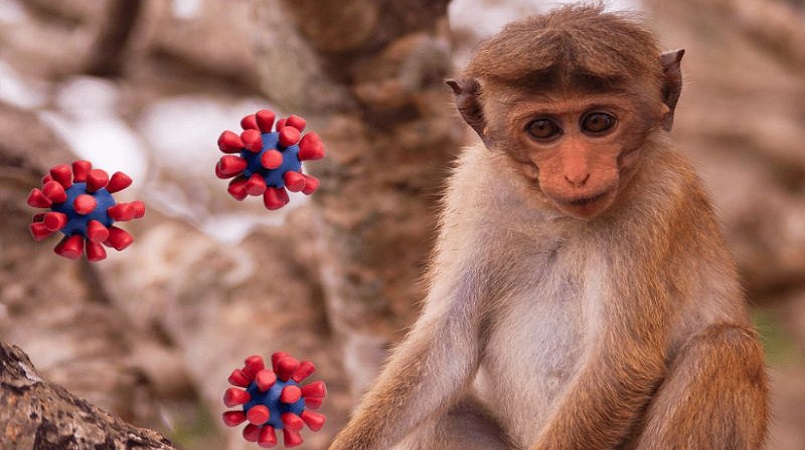
A veterinarian in China has died after contracting the Monkey B virus (BV), a rare infectious disease originating in primates, local health officials revealed in a report earlier this month.
The Beijing-based veterinary surgeon, 53, was China's first documented case of the virus in a human.
According to the Chinese Center for Disease Control and Prevention (CCDC), the man worked in a research institute specialising in nonhuman primate breeding and experimental research.
On March 4 and 6, 2021, the man dissected two dead monkeys. He subsequently experienced nausea and vomiting, followed by fever with neurological symptoms one month later. The patient visited doctors in several hospitals, the CCDC said, but eventually succumbed to the illness on May 27.
On April 17, cerebrospinal fluid - a fluid found within the tissue surrounding the brain and spinal cord vertebrates - was collected from the man for next-generation sequencing. Several other specimens were also collected from the patient, including blood, blister fluid, plasma and nasal and throat swabs.
The genome for Monkey B virus was detected in the veterinarian's cerebrospinal fluid.
"This result confirmed the first human infection case with BV in China," officials said in the report.
Two close contacts, a male doctor aged 47 and a female nurse aged 25, were subsequently sent to the National Institute for Viral Disease Control and Prevention on April 19 for testing. However, both returned negative results for BV.
The Monkey B virus, or herpes B virus, is prevalent among macaque monkeys, but extremely rare - and often deadly - when contracted by humans.
According to the CCDC, BV is normally transmitted in macaques via direct contact and exchange of bodily fluids, similar to the herpes simplex virus (HSV) in humans.
Officials noted that zoonotic BV infections - when the virus is transmitted from animals to people - have mainly involved primate veterinarians, animal care personnel or laboratory researchers in North America, who work directly with primates and risk exposure to their bodily fluids through scratches, bites or dissections.
However, there were no fatal - or even clinically evident - BV infections in China prior to 2021.
"Here, we reported the first human infection case with BV identified in China," officials said.
The report added that the fatality rate of zoonotic BV infections is 70 to 80 percent.
When a human contracts BV, the virus typically attacks the central nervous system and causes inflammation in the brain, leading to a loss of consciousness.
According to the Washington Post, there have been fewer than 100 reported cases of the Monkey B virus in humans since the first case of primate-to-human transmission was recorded in 1932. The majority of the infections have occurred in North America.
In 1997, primate researcher Elizabeth Griffin died six weeks after a drop of liquid expelled by a cage monkey landed in her eye.
According to the US Centers for Disease Control and Prevention, there has only been one documented case of human-to-human transmission.
Nikolaus Osterrieder, dean of the Jockey Club College of Veterinary Medicine and Life Sciences in Hong Kong, told the Washington Post both the Monkey B virus and SARS-CoV-2, the novel coronavirus, are "the consequences of species jumps".
However, the difference is that the Monkey B virus is well-adapted to macaque monkeys - and is therefore unlikely to mutate in a way that will lead to rapid transmission among humans.
Chinese health officials suggested that BV in monkeys may pose a "potential zoonotic threat" to occupation workers.
"It is necessary to eliminate BV during the development of specific pathogen-free rhesus colonies and to strengthen surveillance in laboratory macaques and occupational workers in China."
Last week, health officials in Dallas, Texas reported that a man had become infected with a rare case of monkeypox, which can also be transmitted through animal bites and scratches.
